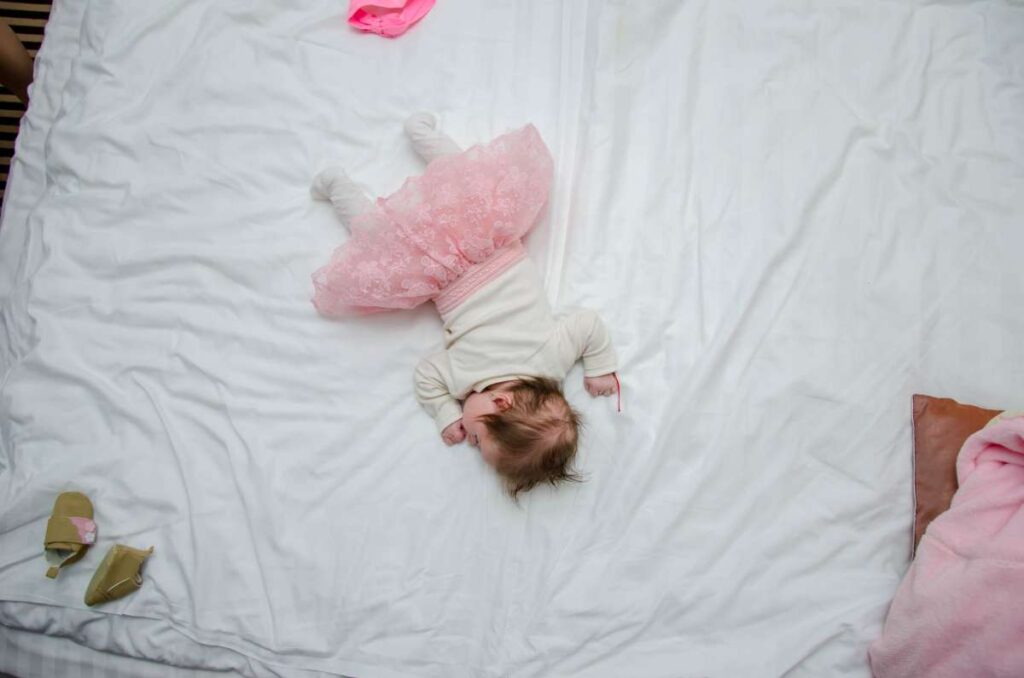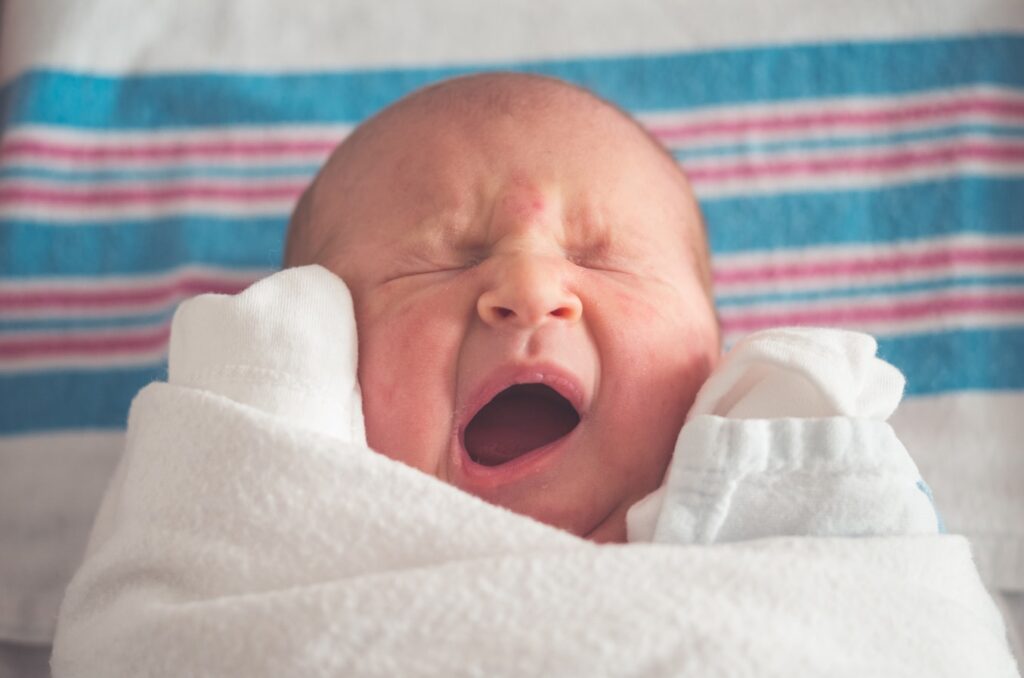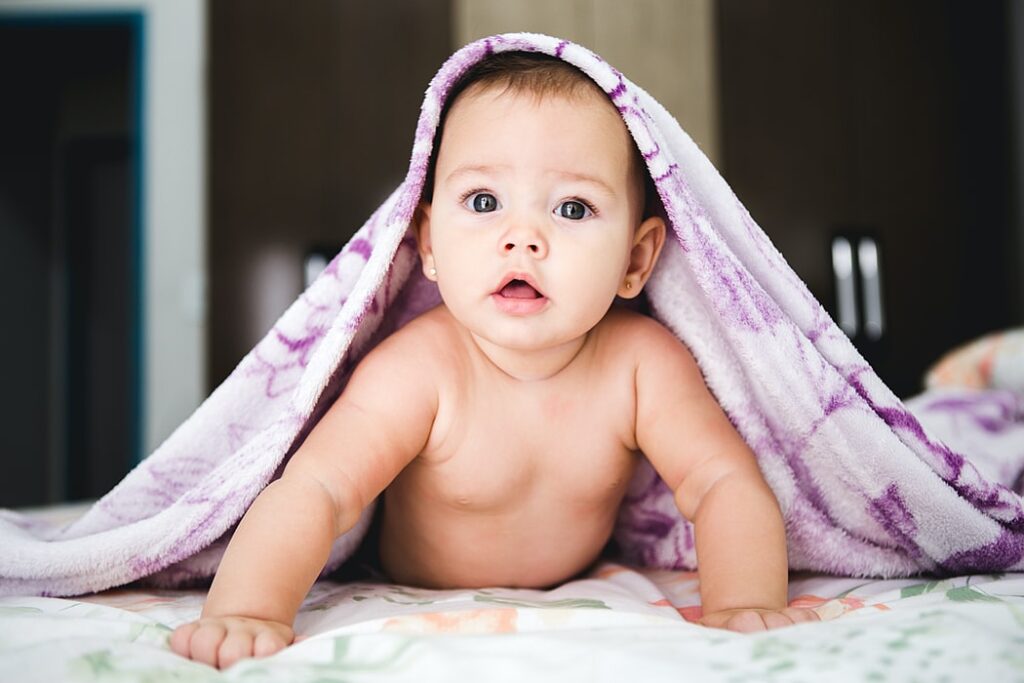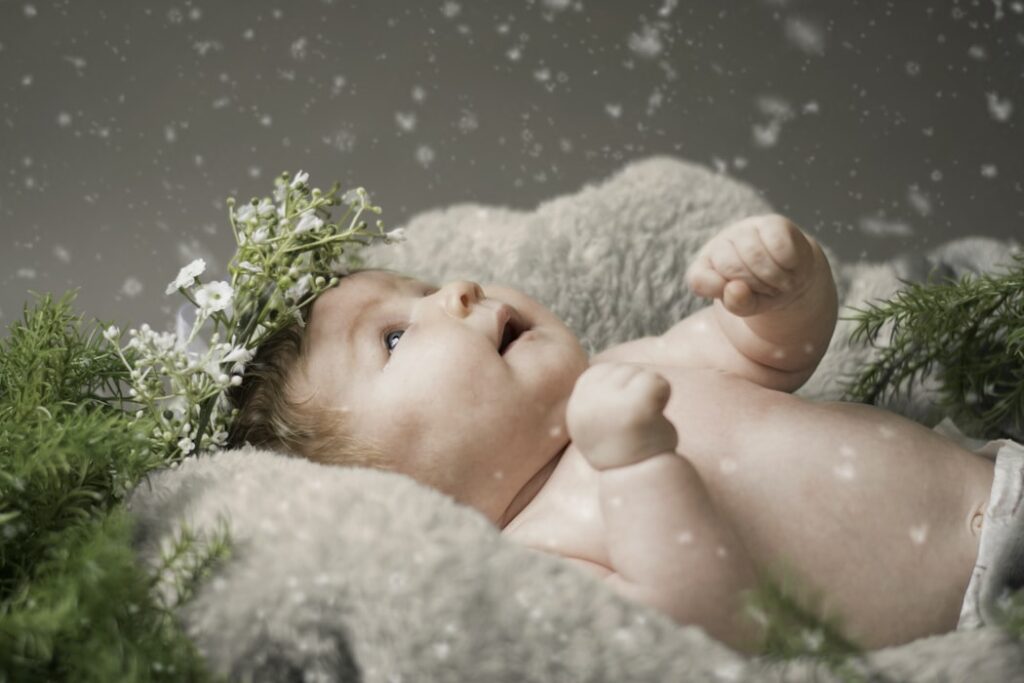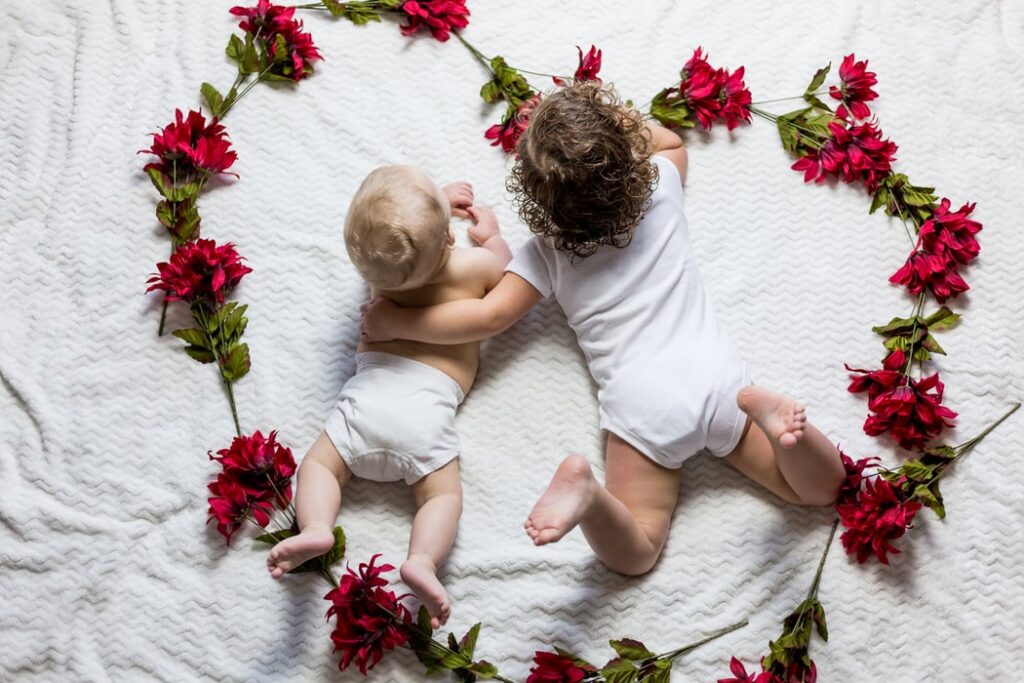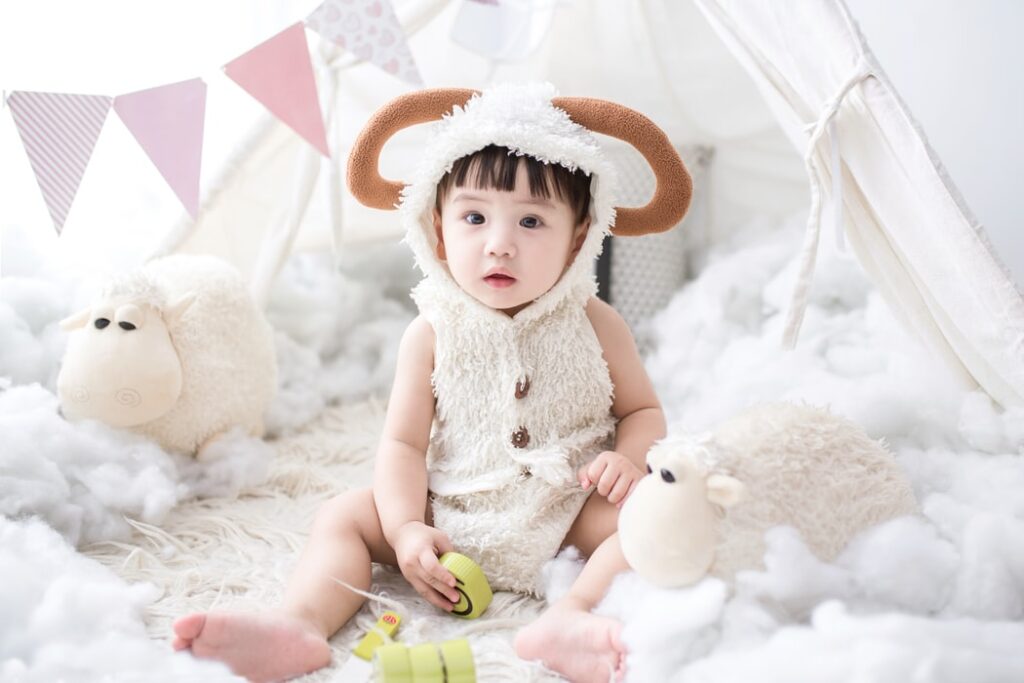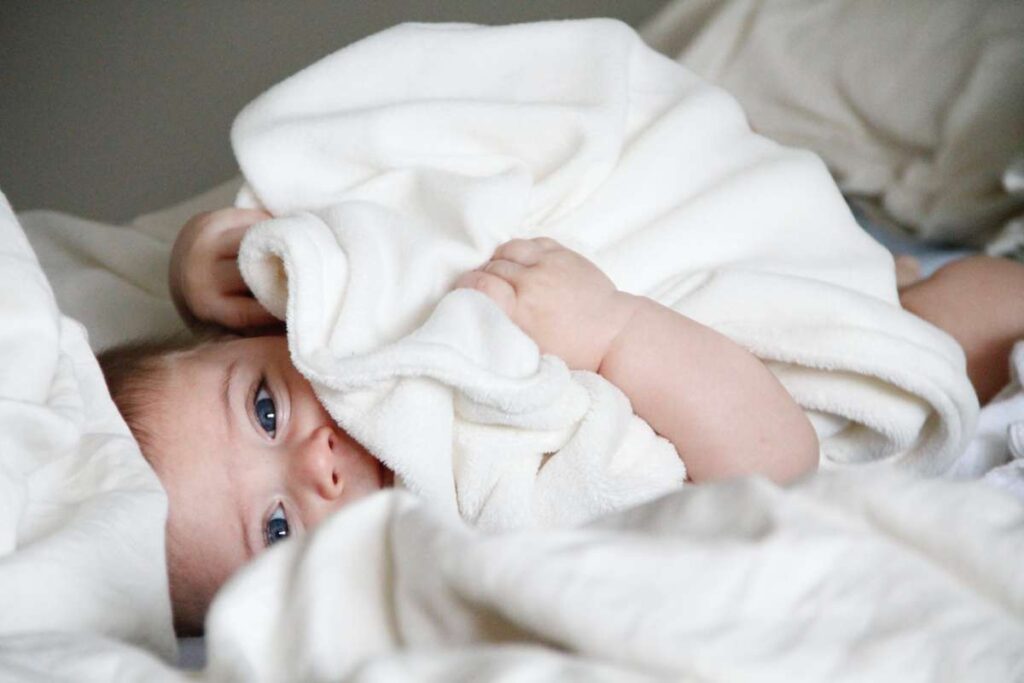When asking this, most parents are trying to avoid buying more stuff than they actually need. Regrettably, you'll need more than one crib sheet to properly care for your infant.
Why do newborns require so many crib sheets if they are equivalent to adult bed sheets? Babies are known for making a mess. They gag, puke, and have accidents frequently. Crib sheets should be changed at least once or twice weekly, according to experts, but it's always good to keep a few spares on hand just in case.
Two crib sheets are plenty; one for the mattress and one on hand for when it needs to be changed. The catch is that the used sheet has to be washed and dried quickly after being replaced. Unfortunately, a realistic home probably needs more than just two crib linens.
You should think about how often you intend to replace the crib sheets as the primary consideration in determining how many crib sheets to purchase.
Two or three sets of crib sheets should be sufficient for parents who intend to do laundry every two or three days. Parents who want to change their baby's linens more frequently than once every two days may wish to stock up on four or five sets. These totals already incorporate extra pages reserved for possible unforeseen incidents.
You've just found out that you're going to be a parent, and now you're scrambling to figure out what you need to buy, from a crib to how many crib sheets.
Preparing to become a parent is a major life change, and it helps to have a starting point when trying to figure out all the details.
Everyone knows that a baby's main concern is either feeding or sleeping. Laundry, changing sheets and blankets, washing, and bathing the infant are all part of a parent's daily routine.
In addition to these considerations, you also need to make sure your kid is well-fed, healthy, and comfortable.
With regards to changing a crib's bedding, where do you even begin? We'll discuss some of the considerations you should make and offer some suggestions for the best crib sheets to buy below.
FAQs About Crib Sheets
Remember to check your baby's crib and sheets regularly for any overlooked spots that might be soiled! If you want to place fresh sheets in your baby's crib once a week, plan for two or three crib sheets. But if you plan on changing your crib sheets out every day, we recommend having at least five to seven crib sheets.
Always make it a point to change your child's bedding sheets 1 to 2 times per week. For any spills or upsets, always clean immediately.
A firm mattress that fits the cot snugly without leaving spaces around the edges so your baby cannot trap their head and suffocate. Sheets to cover the mattress – you need at least four because they need to be changed often; fitted sheets make life easier but can be quite expensive so that you could use pieces of an old sheet.
Dust, hair, and dead skin cells also accumulate on the sheets over time. Consequently, your baby's sheets would attract bacteria and pests that adversely impact their health. Because of that, your baby's sheets need to be washed at least every three days, which is twice a week.
You should wash the baby's clothes, blankets and other washable items that will contact her skin.
More Than Two Crib Sheets Are Required.
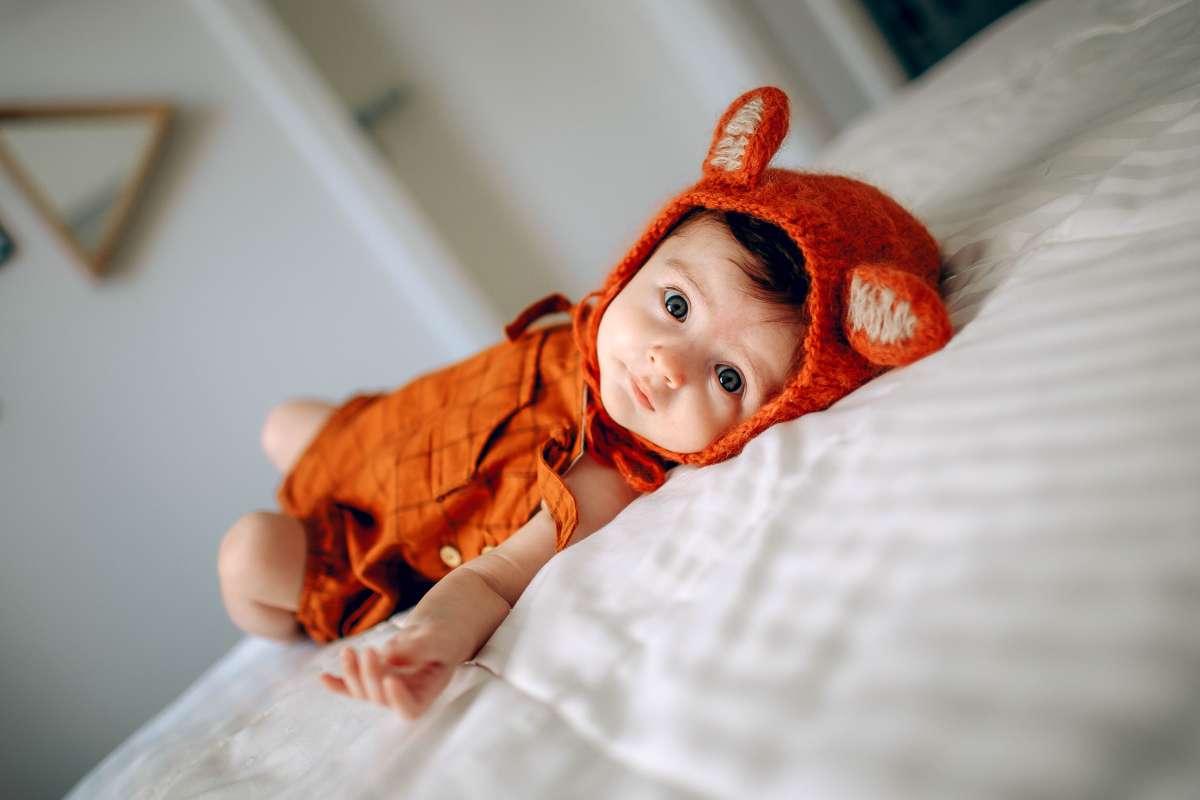
The process of switching out a baby's crib for a new bed is similar to that of switching out your own bed. Therefore, if you follow the advice of sleep experts and switch yours out once a week, you should do the same, or even more frequently, due to other variables, with your baby's cot.
You, the parent, must balance your ideals with practical considerations when determining the frequency with which crib sheets must be washed.
Babies, by their very nature, tend to be extremely untidy. They frequently have bed wetness, spit up, drool, and sweat in their mattresses from diapers. To ensure the cleanliness and safety of your baby's crib at all times, you should always have a spare sheet on hand.
Two crib sheets should suffice. However, in practise, more means less stress.
Things To Think About When Buying Crib Sheets
You should put as much thought into the crib sheets as you do the mattress and the actual crib. It is imperative that you put your baby's safety first at all times.
When shopping for crib linens, it's important to keep a few details like these in mind.
Breathability
Babies perspire heavily. Infants, who spend much of their time on their backs unless being held, are particularly vulnerable to this problem. They don't move around much, therefore the air doesn't circulate very well.
Your goal should be to find sheets that are constructed of a naturally breathable fabric so that they can sleep cool and comfortably.
Fit
Fitting the crib sheet properly is essential. Ensure that there are no sags or gaps between the mattress and the crib. Your baby's cot should be a secure place for them to sleep and relax, therefore this is very important.
Babies, especially as they get older, have a habit of making a lot of wriggling and other noises as they sleep. Use a fitted sheet to prevent your infant from untucking the sheet from the mattress. Nothing will clump up and become a hazard for them even if they move around in their sleep.
It is also not a good idea to embellish cribs with things like bumper pads, stuffed animals, or pillows. The reason behind this is that if anything is pressed too close to a newborn's face, the baby cannot move away.
They couldn't get away if, for instance, they squirmed up against the bumper pads.
Fitting your baby's crib sheet properly is crucial for their safety while they sleep. Both the mattress and the sheet should be a snug fit within the crib.
Cribs can be a bit of a jumbled place due to all the wriggling and rolling that goes on in there with infants. A crib sheet that fits snugly will reduce the likelihood that it will bunch up and be pushed around, both of which can be problematic for a sleeping baby.
Avoid putting any extra bedding in your baby's cot, since it could potentially impede their breathing if something were to be shoved against their face. Accessories like cushions, blankets, bumper pads, and stuffed animals fall under this category.
Babies Get Sick
Since there are just two of you, you've decided to use those for the crib. One is in the dryer and the other is in the crib. Until your baby becomes sick, you'll appreciate how well-designed and useful this is. When a child is sick, no parent wants to see them.
As our babies adjust to life outside the womb, this is a reality. If this does occur, there is a greater possibility that they will wet the bed more than once while they sleep. They may perspire more readily, necessitating more frequent sheet changes.
The old adage goes, "Better safe than sorry," and We wholeheartedly agree. To keep your sanity, go out and get some more bedding.
Having to do laundry immediately because there are no clean crib linens is the last thing anyone needs to worry about when their child is sick.
Having a sick infant is the last thing you want, but it does occur. When your infant is still developing and learning about the world, occasional illness is to be expected.
Your infant's bedding, clothing, and toys will become contaminated if an illness is circulating in your home. On particularly bad sick days, it may be necessary to change the sheets as frequently as the baby's diapers.
This is why changing your baby's linens regularly, if not everyday, is essential at this period. Babies should always sleep on clean bedding in their crib or bassinet.
To further lessen the likelihood of illness spreading in your home, make sure you practise adequate handwashing and separate your sick family members from your newborn.
All things considered, it's up to you and your family to decide how many crib sheets you'll need for your new baby. We suggest using no less than two and no more than seven crib sheets.
There's no need to go crazy on crib sheet purchases, but it's still smart to be ready for anything.
Allergens
It's easy to overlook how sensitive a baby's skin is while making large purchases like bedding. Look for hypoallergenic claims while shopping for baby bedding if you are worried about allergens.
This won't prevent your infant from being allergic or from having a reaction, but it will lessen the severity of either. Babies spend several hours each day sleeping in their cribs, so it's important to make sure they're as comfortable and content as possible there.
Products labelled "hypoallergenic" have been shown to have significantly reduced amounts of allergens typically found in cosmetics and textiles.
Though it is difficult to completely eliminate the possibility of an allergic reaction, these products have been shown to significantly reduce the severity of reactions. It's crucial to pick hypoallergenic fabrics for your baby's crib sheet because he or she will be sleeping on it for several hours every day.
The products sold by Newton Baby are made entirely from hypoallergenic materials. The lack of moisture and humidity that can accumulate thanks to the breathe-thru technology and the material's breathability makes it an unsuitable habitat for dust mites.
Additionally, all of our goods are easily washable, which aids in the prevention of dust and allergy buildup.
Mattress Protector
Investing in a mattress protector is a terrific option that will keep your crib mattress and sanity in one piece. These can be found in many different stores and give parents some relief.
Just like a regular crib sheet, this one goes on top of your mattress in the crib. It prevents spills from leaking through to your mattress thanks to an integrated waterproof barrier. These can be removed and thrown in the washing machine if they get dirty.
Unfortunately, accidents like your kid being ill or their diaper leaking through the crib sheet are all too common. When you use a crib mattress, you may rest easy knowing that your regular mattress won't be contaminated.
What Crib Sheet Size Do I Need?
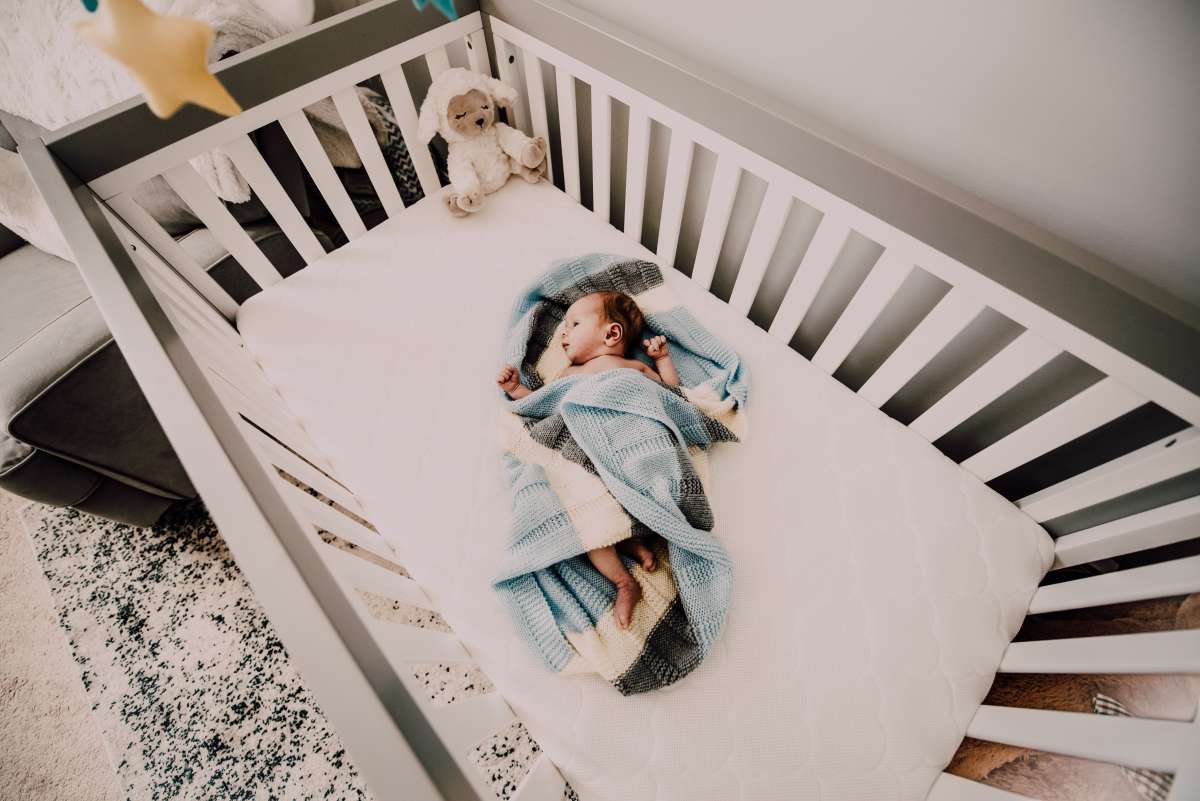
Your crib sheet's fit is crucial. There is a specific size mattress that fits in a crib, and it is imperative that you get that size.
There are two sizes of crib sheets:
- Standard crib sheet – tThis item is 52 inches by 28 inches. A full-size crib mattress or a toddler bed mattress will fit here.
- Mini crib sheet – It is 38 inches wide and 24 inches tall. This can accommodate a conventional Pack n Play mattress, as well as a standard-sized mini crib mattress, which is 39 by 27 inches.
How Do I Select The Best Baby Crib Sheet?
Fabric Breathability
Babies should always be laid on their backs in the cot. Babies will sweat while they lie there since their bodies are unable to move. Your infant will stay more comfortable on sheets made of breathable fabrics.
Sheets made from organic cotton, like the Burt's Bees Baby Fitted Crib Sheet, are a common option for parents who prioritise breathability. The most popular option for crib linens due to its breathability and affordability is organic cotton, although standard cotton works just as well.
In the winter, some parents choose to use flannel sheets. This is fantastic for older children and adults, but it's not a good option for infants.
Babies have trouble falling or staying asleep because they are too warm in their flannel sheets. Cotton fabrics, notably those made in a jersey weave, have the ability to both absorb excess heat and retain body heat.
Crib Sheet Sizes
There are two primary options when selecting a crib sheet: normal and tiny. Your baby's crib mattress will determine the appropriate size.
Miniature mattresses require special small crib sheets. These miniature bed linens are tailor-made to suit mattresses found in portable cribs like the Pack N Play. Mini crib sheets are available in a variety of sizes to accommodate mattresses from 1 to 5 inches in thickness and dimensions of 27 by 39, 25 by 37, and 24 by 38 inches.
In general, a crib sheet should be 52 inches wide and 28 inches long. This crib sheet from Mebie Baby is the regular size and is made to fit perfectly on a standard crib mattress.
In order to get the right size of sheets, you should always measure your crib mattress or verify the manufacturer's specifications. Crib mattress thickness can vary from two to four inches; therefore, it is important to double check the measures of the mattress before purchasing crib linens.
Fitted sheets should be purchased for all cribs, regardless of size. For the simple reason that a fitted crib sheet will not shift or bunch up on the mattress.
When your baby is less than a year old, the crib should never have unsecured items or extra bedding. Flat sheets are not recommended for use in a crib, as they offer no real benefits.
Hypoallergenicity
As was previously discussed, a baby's skin is far more delicate than an adult's. The best crib linens will have the word "hypoallergenic" anywhere in the name.
If they claim to be hypoallergenic, it's because they avoid using ingredients that are known to cause allergic reactions in some people. No product can be guaranteed to not trigger an allergic reaction, however hypoallergenic alternatives considerably lessen that possibility.
You'll want to make sure your kid is as secure as possible while they're napping for several hours each day in their cot.
Machine Washability
Machine-washable crib linens are a must-have for the sake of your sanity, and we know it seems strange to have to point this out. New parents don't usually have time to hand-wash dirty bedding, and that's the last thing you want to deal with.
The messiest spills can be easily cleaned up by tossing the items in the washing machine and walking away. Using a detergent that is safe for infants is essential; options include Dreft Hypoallergenic Liquid Baby Laundry Detergent and Puracy Natural Liquid Laundry Detergent.
Conclusion
There should be more than one sheet on the baby's crib. Experts recommend changing a baby's crib sheet once or twice per week. Parents who want to wash their infant's bedding frequently may want to get an extra pair or two. Diaper leaks, spit-up, drool, and sweat are just some of the everyday messes that can be found in a baby's mattress. It's important to keep a replacement sheet available in case the one you're using gets dirty, or your baby needs a bath.
Due to their lack of mobility, infants are especially at risk. A fitted crib sheet is less likely to bunch up and be displaced in the crib. A baby's crib or bassinet should always have clean linens. We recommend using no less than two and no more than seven fitted crib sheets. Because your baby will spend so much time on the crib sheet daily, selecting hypoallergenic materials is important.
The breath-thru design and increased airflow make this an unwelcome environment for dust mites because there is nowhere for moisture or humidity to accumulate. It's recommended that a crib sheet be 52 inches broad and 28 inches long. Due to its affordability and breathability, organic cotton has become the fabric of choice for crib sheets. Specialised crib sheets tailored to accommodate little mattresses are needed for portable cribs like the Pack N Play. The term "hypoallergenic" should appear anywhere in the name of the best crib sheets.
Content Summary
- Regrettably, you'll need more than one crib sheet to care for your infant properly.
- Two crib sheets are plenty; one for the mattress and one on hand for when it needs to be changed.
- It would help to consider how often you intend to replace the crib sheets as the primary consideration in determining how many crib sheets to purchase.
- You've just discovered that you're going to be a parent, and now you're scrambling to figure out what you need to buy, from a crib to how many crib sheets.
- Laundry, changing sheets and blankets, washing, and bathing the infant are all part of a parent's daily routine.
- We'll discuss some considerations you should make and offer suggestions for the best crib sheets to buy below.
- Therefore, if you follow the advice of sleep experts and switch yours out once a week, you should do the same, or even more frequently, due to other variables, with your baby's cot.
- You, the parent, must balance your ideals with practical considerations when determining the frequency with which crib sheets must be washed.
- To ensure the cleanliness and safety of your baby's crib, you should always have a spare sheet on hand.
- It will help if you put as much thought into the crib sheets as the mattress and the crib.
- You must put your baby's safety first at all times.
- Ensure that there are no sags or gaps between the mattress and the crib.
- Your baby's cot should be a secure place to sleep and relax. Therefore this is very important.
- Use a fitted sheet to prevent your infant from untucking the sheet from the mattress.
- A crib sheet that fits snugly will reduce the likelihood that it will bunch up and be pushed around, which can be problematic for a sleeping baby.
- Since there are just two of you, you've decided to use those for the crib.
- When your infant is still developing and learning about the world, rare illness is to be expected.
- Your infant's bedding, clothing, and toys will become contaminated if an illness is circulating in your home.
- On particularly bad sick days, it may be necessary to change the sheets as frequently as the baby's diapers.
- This is why changing your baby's linens regularly, if not every day is essential at this period.
- Babies should always sleep on clean bedding in their crib or bassinet.
- To further lessen the likelihood of illness spreading in your home, ensure you practise adequate handwashing and separate your sick family members from your newborn.
- Look for hypoallergenic claims while shopping for baby bedding if you are worried about allergens.
- It's crucial to pick hypoallergenic fabrics for your baby's crib sheet because they will sleep on it for several hours daily.
- The products sold by Newton Baby are made entirely from hypoallergenic materials.
- Investing in a mattress protector is a terrific option that will keep your crib mattress and sanity in one piece.
- Babies should always be laid on their backs in the cot.
- Your infant will stay more comfortable on sheets made of breathable fabrics.
- There are two primary options when selecting a crib sheet: normal and tiny.
- Your baby's crib mattress will determine the appropriate size.
- Miniature mattresses require special small crib sheets.
- Generally, a crib sheet should be 52 inches wide and 28 inches long.
- This crib sheet from Mebie Baby is the regular size and is made to fit perfectly on a standard crib mattress.
- To get the right size of sheets, you should always measure your crib mattress or verify the manufacturer's specifications.
- Fitted sheets should be purchased for all cribs, regardless of size.
- The crib should never have unsecured items or extra bedding when your baby is less than a year old.
- The best crib linens will have the word "hypoallergenic" anywhere in the name.
- Machine-washable crib linens are a must-have for your sanity, and we know it seems strange to have to point this out.
